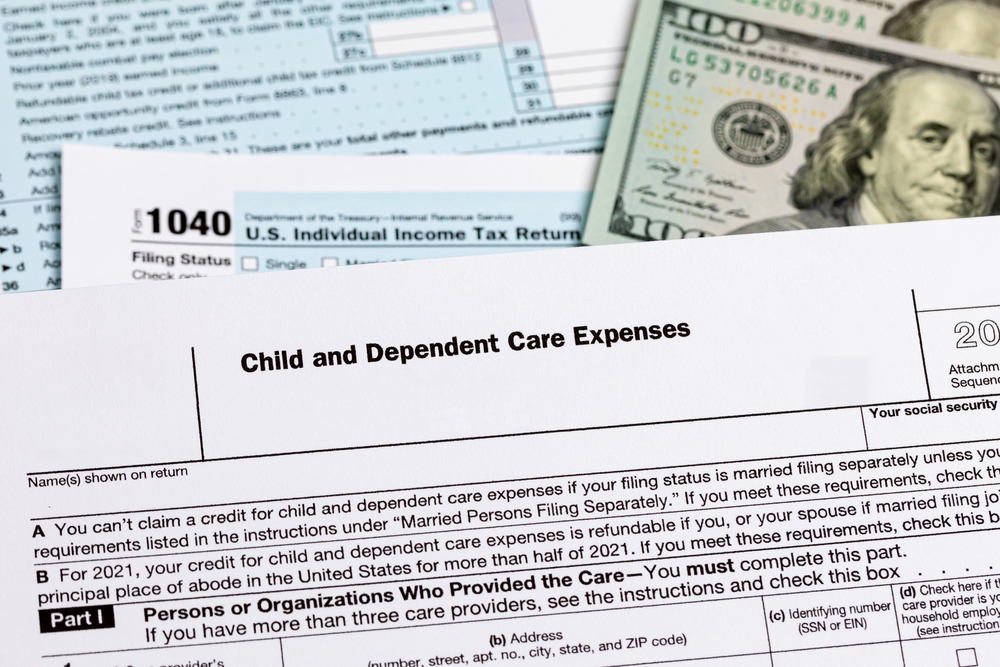Taxes can be a real headache, but knowing what you can deduct can make a big difference. You might be surprised by some of the things you can write off. From home office expenses to student loan interest, there are many deductions out there that can save you money. In this article, we’re diving into 15 lesser-known tax deductions that you might not have heard of. These tips can help you keep more of your hard-earned money come tax season.
Contents
- 1 Home Office Deduction
- 2 Health Savings Account (HSA) Contributions
- 3 Guard Dog Costs
- 4 Self-Employment Tax
- 5 Moving Expenses for Military Personnel
- 6 Out-of-Pocket Charity Expenses
- 7 Student Loan Interest
- 8 Mortgage Points
- 9 Medical and Dental Expenses
- 10 State and Local Taxes (SALT)
- 11 IRA Contributions
- 12 Job Search Expenses
- 13 Teacher Classroom Supplies
- 14 Child and Dependent Care Credit
- 15 Jury Duty Pay Given to Employer
- 16 More From RetailShout
- 17 14 Southeast Asian Soups That Will Warm Your Soul
- 18 20 Best Trader Joe’s Products for Meal Prep and Planning
Home Office Deduction

If you work from home, you can deduct expenses related to your home office. The space must be used exclusively for business purposes. You can deduct $5 per square foot of your home office, up to a maximum of 300 square feet. Alternatively, you can calculate your deduction based on the actual expenses of your home office, such as a portion of your mortgage or rent, utilities, and insurance. Keeping accurate records of these expenses is crucial for maximizing this deduction.
Health Savings Account (HSA) Contributions

Contributions to a Health Savings Account (HSA) are tax-deductible, and earnings grow tax-free. Funds can be withdrawn tax-free for qualified medical expenses. To qualify, you must be enrolled in a high-deductible health plan. The IRS sets annual contribution limits, which vary based on individual or family coverage. Accurate records of contributions and withdrawals are necessary to maintain the tax benefits. This deduction supports saving for future healthcare costs while providing immediate tax relief. HSAs offer a triple tax advantage: deductible contributions, tax-free growth, and tax-free withdrawals for medical expenses.
Guard Dog Costs

If you use a dog to guard your business premises, you may deduct expenses related to the dog’s care. These expenses include food, veterinary bills, and training costs. The IRS requires that the dog be of a breed traditionally used for protection. To qualify, the dog must primarily work for the business and not be kept as a pet. Accurate records of the expenses and the dog’s working hours should be maintained to justify the deduction. This deduction is more common among businesses that handle valuable goods or need enhanced security.
Self-Employment Tax

Self-employed individuals can deduct half of their self-employment tax. This tax includes Social Security and Medicare taxes, which total 15.3% of net earnings. Employees and employers each pay half of this tax, but self-employed individuals must cover both portions. By deducting half of the self-employment tax, you can reduce your taxable income and potentially lower your overall tax liability.
Moving Expenses for Military Personnel

Active-duty military members can deduct moving expenses if they relocate due to a permanent change of station. This deduction covers costs such as transportation, lodging, and shipping of household goods. To qualify, the move must be closely related to the start of work at the new location. Non-military personnel are no longer eligible for this deduction due to changes in the tax law.
Out-of-Pocket Charity Expenses

Volunteers can deduct unreimbursed expenses incurred while performing charitable activities, such as travel, uniforms, and supplies. The expenses must be directly related to the charity’s work and necessary for the performance of volunteer duties. The IRS requires detailed records, including receipts and mileage logs, to claim this deduction. For travel expenses, the standard mileage rate for charitable activities can be used. This deduction helps support individuals who contribute their time and resources to charitable organizations. Accurate documentation ensures compliance with IRS requirements.
Student Loan Interest

You can deduct up to $2,500 of interest paid on qualified student loans. This deduction is available even if you don’t itemize your deductions. To qualify, your modified adjusted gross income must be below a certain threshold, and you cannot be claimed as a dependent on someone else’s tax return. This deduction helps reduce the financial burden of student loan debt by lowering your taxable income.
Mortgage Points

Points paid to reduce the interest rate on a mortgage for a primary residence can be deducted in the year paid. The points must be paid directly by the borrower and not rolled into the loan amount. The IRS requires the mortgage to be secured by the primary residence, and the points must be clearly stated on the settlement statement. Detailed records of the payment and the mortgage documents are necessary to claim this deduction. This benefit helps reduce the overall cost of homeownership. It is particularly useful for new homebuyers.
Medical and Dental Expenses

You can deduct medical and dental expenses that exceed 7.5% of your adjusted gross income. Eligible expenses include preventative care, surgeries, dental treatments, prescriptions, and travel costs for medical care. This deduction requires itemizing on Schedule A, and it can provide relief for those with significant medical expenses not covered by insurance.
State and Local Taxes (SALT)

You can deduct up to $10,000 of state and local taxes paid, including property taxes and either state income taxes or sales taxes. This deduction is available if you itemize your deductions. The SALT deduction can provide significant tax savings, especially for taxpayers in states with high property taxes or income taxes. However, the $10,000 cap may limit the benefit for those with substantial state and local tax liabilities.
IRA Contributions

Contributions to a Traditional IRA are tax-deductible up to the annual limit, which is $6,500 for most people and $7,500 for those aged 50 and older. This deduction is available if you or your spouse are not covered by a retirement plan at work or if your income is below certain limits. This deduction can help you save for retirement while reducing your taxable income.
Job Search Expenses

Expenses related to searching for a new job in your current occupation are deductible. These expenses include resume preparation, travel costs for interviews, and employment agency fees. To qualify, the job search must be for a position in the same field, and the expenses must exceed 2% of your adjusted gross income. This deduction can help offset the costs of finding new employment.
Teacher Classroom Supplies

Educators can deduct up to $250 of unreimbursed expenses for classroom supplies, including books, materials, and equipment. This deduction applies to teachers, instructors, counselors, and principals who work at least 900 hours in a school year. The expenses must be directly related to the educational activities of the students. Receipts and records of the purchases are necessary to claim this deduction. This benefit helps offset the personal costs teachers often incur to enhance their classroom environments. Both public and private school educators are eligible.
Child and Dependent Care Credit

This credit covers expenses incurred for the care of a child or dependent while you work or look for work. Qualifying expenses include daycare, babysitting, and summer camps. The IRS allows a percentage of these costs to be claimed, depending on income levels. The maximum amount of expenses that can be claimed is $3,000 for one dependent or $6,000 for two or more. To qualify, the caregiver cannot be a spouse, the parent of the child, or another dependent. Proper documentation, such as receipts and payment records, is required to claim this credit.
Jury Duty Pay Given to Employer

If your employer pays your regular salary while you serve on a jury, you might have to turn over your jury duty pay to them. In such cases, you can deduct the amount of jury duty pay given to your employer. This prevents the pay from being taxed twice. To claim this deduction, you need to include the jury duty pay in your gross income. Documentation from your employer showing the payment and the transfer of jury duty pay is required. This deduction helps ensure fair taxation for individuals fulfilling civic duties.
This article originally appeared on RetailShout
More From RetailShout
28 Healthy Lunch Ideas That Require Minimal Prep

Eating healthy doesn’t have to be complicated or time-consuming. Sometimes, the simplest meals are the most satisfying. Whether you’re at work, on the go, or just relaxing at home, having a list of quick and nutritious lunch ideas can make life so much easier. Read More.
14 Southeast Asian Soups That Will Warm Your Soul

Southeast Asia is home to some of the most flavorful and comforting soups in the world. These soups, rich in history and tradition, bring together a variety of spices, fresh herbs, and vibrant ingredients that are sure to warm your soul. Read More.
20 Best Trader Joe’s Products for Meal Prep and Planning

Meal prepping and planning can be a game-changer for anyone looking to save time, eat healthier, and stay organized throughout the week. Trader Joe’s offers a variety of ingredients and ready-to-eat options that can simplify your routine while keeping your meals exciting and delicious. Read More.






